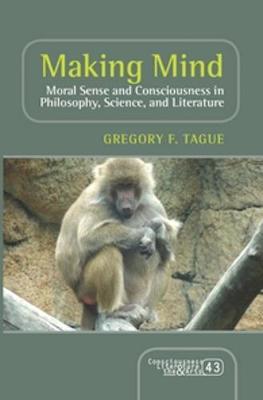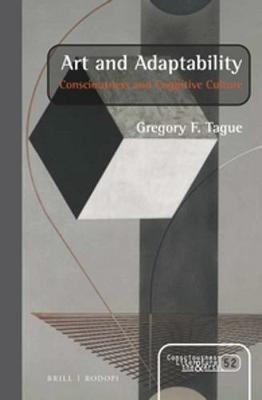Consciousness, Literature and the Arts
2 primary works
Book 43
Making Mind: Moral Sense and Consciousness in Philosophy, Science, and Literature posits the genesis of narrative as an adaptive function stemming from consciousness and moral sense. The book is unique with its idea of the individual character evolving narrative in relation to the group. Central to the argument is the claim that prehistorically, consciousness and moral sense intersected to form narrative. More than addressing the origin of story, the book examines and explains the evolution of narrative. The book is an interesting study of how our species-inherited moral sense can differ dramatically from one individual to another. While mores pertain to a group, narrative comes from and is processed by the individual and reaches its high point in the novel. We see how the moral sense works in characters as a monitor, and we feel it operating in us as readers in terms of approval, or not.
Book 52
Art and Adaptability argues for a co-evolution of theory of mind and material/art culture. The book covers relevant areas from great ape intelligence, hominin evolution, Stone Age tools, Paleolithic culture and art forms, to neurobiology. We use material and art objects, whether painting or sculpture, to modify our own and other people's thoughts so as to affect behavior. We don't just make judgments about mental states; we create objects about which we make judgments in which mental states are inherent. Moreover, we make judgments about these objects to facilitate how we explore the minds and feelings of others. The argument is that it's not so much art because of theory of mind but art as theory of mind.

